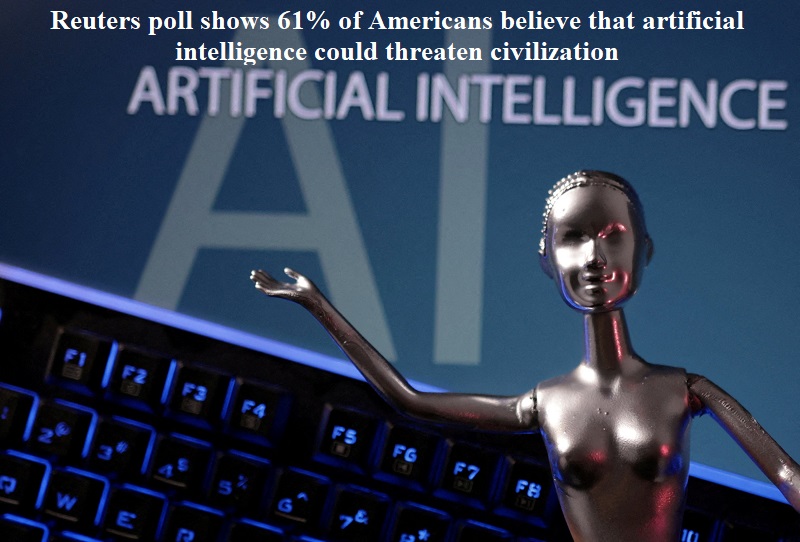
A survey conducted by Reuters/Ipsos and published on Wednesday revealed that 61 percent of Americans believe that artificial intelligence (AI) could pose a threat to civilization. This concern arises as companies across various sectors are racing to develop increasingly advanced AI models, raising apprehensions among critics and industry experts.
The poll indicated that more than two-thirds of Americans are worried about the negative consequences of AI. Interestingly, it’s not only critics and industry experts expressing concerns; even the CEO of OpenAI, the organization that initiated the AI race, has recently voiced apprehensions about the potential misuse of the technology.
During a panel discussion with US lawmakers on Tuesday, Sam Altman, the CEO of the startup responsible for creating the ChatGPT chatbot, emphasized the importance of regulating the “increasingly powerful models” of AI to mitigate potential risks associated with the technology.
Furthermore, the survey revealed that Americans who voted for former President Donald Trump expressed higher levels of concern regarding AI’s potential threats to humanity compared to voters of current President Joe Biden. 70 percent of Trump voters agreed, while 60 percent of Biden voters shared the same concern, as reported by Reuters/Ipsos.
Religious beliefs also played a role in respondents’ perspectives on AI risks. Among Evangelical Christians, 32 percent “strongly agreed” that AI poses risks to humanity, compared to 24 percent among non-Evangelical Christians.
The online poll involved 4,415 US adults and was conducted from May 9 to May 15. The credibility interval, which measures the accuracy of the poll, was plus or minus two percentage points. The survey indicated that the number of Americans who believe in the adverse outcomes of AI is three times higher than those who don’t.
While 61 percent of respondents expressed concern about AI risks, 22 percent disagreed, and 17 percent were uncertain, according to the Reuters/Ipsos poll. However, some individuals in the industry argue that people should also recognize the benefits of AI.
Sebastian Thrun, a computer science professor at Stanford and the founder of Google X, remarked that although the concerns are valid, the dialogue should also encompass the reasons behind pursuing AI in the first place. Thrun highlighted how AI can enhance people’s quality of life, making them more competent and efficient. Similarly, Altman emphasized the societal benefits of AI and expressed optimism that OpenAI’s generative AI will eventually address significant challenges such as climate change and cancer treatment.

Post Your Comments